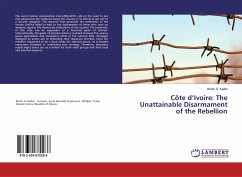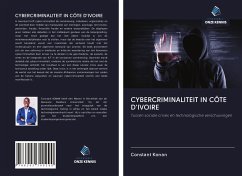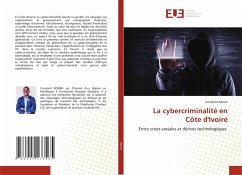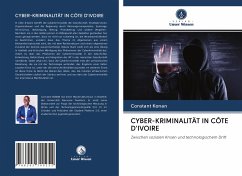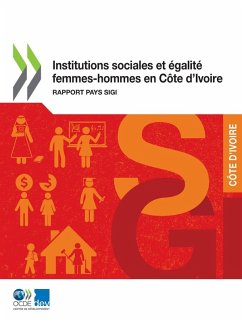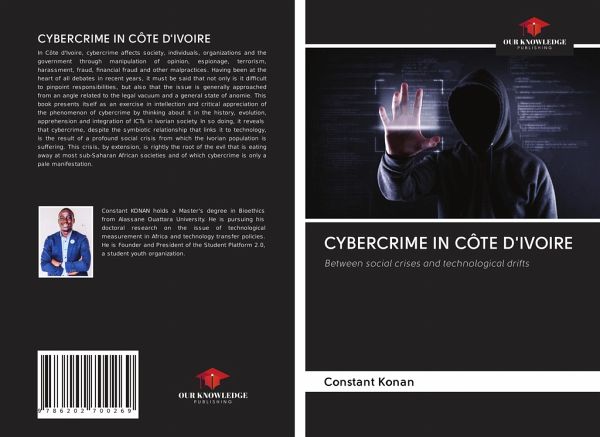
CYBERCRIME IN CÔTE D'IVOIRE
Between social crises and technological drifts
Versandkostenfrei!
Versandfertig in 1-2 Wochen
18,99 €
inkl. MwSt.

PAYBACK Punkte
9 °P sammeln!
In Côte d'Ivoire, cybercrime affects society, individuals, organizations and the government through manipulation of opinion, espionage, terrorism, harassment, fraud, financial fraud and other malpractices. Having been at the heart of all debates in recent years, it must be said that not only is it difficult to pinpoint responsibilities, but also that the issue is generally approached from an angle related to the legal vacuum and a general state of anomie. This book presents itself as an exercise in intellection and critical appreciation of the phenomenon of cybercrime by thinking about it in ...
In Côte d'Ivoire, cybercrime affects society, individuals, organizations and the government through manipulation of opinion, espionage, terrorism, harassment, fraud, financial fraud and other malpractices. Having been at the heart of all debates in recent years, it must be said that not only is it difficult to pinpoint responsibilities, but also that the issue is generally approached from an angle related to the legal vacuum and a general state of anomie. This book presents itself as an exercise in intellection and critical appreciation of the phenomenon of cybercrime by thinking about it in the history, evolution, apprehension and integration of ICTs in Ivorian society. In so doing, it reveals that cybercrime, despite the symbiotic relationship that links it to technology, is the result of a profound social crisis from which the Ivorian population is suffering. This crisis, by extension, is rightly the root of the evil that is eating away at most sub-Saharan African societies and of which cybercrime is only a pale manifestation.




